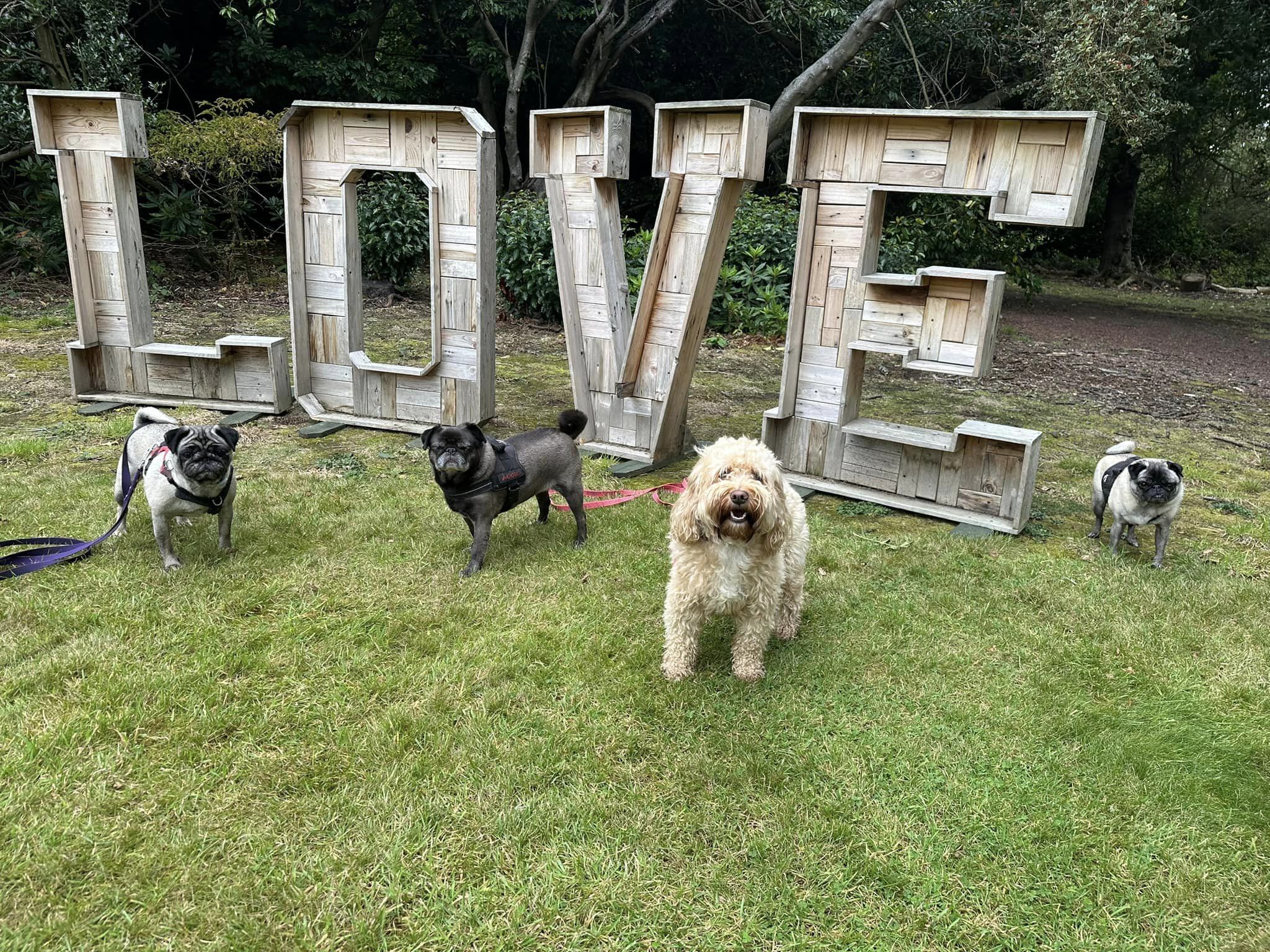Fear and Anxiety: Understanding How Dogs Cope with Stressful Situations
27/09/2023 - Dog Blog
🐶 As a professional dog walker and trainer, we’re no strangers to the diverse personalities and emotions exhibited by our beloved canine companions.
🐶 While dogs are known for their loyalty, playfulness, and affection, they, too, experience fear and anxiety in certain situations.

🐶 Understanding the roots of these emotions and learning how to help our four-legged friends cope is essential to ensure their well-being and strengthen the bond between humans and dogs. In todays article, we'll delve into the world of fear and anxiety in dogs, explore common triggers, and provide valuable tips for helping them overcome these emotions.
🐾Recognizing Fear and Anxiety in Dogs:
Dogs communicate their feelings through body language, vocalizations, and behavior. When faced with fear or anxiety, some common signs you may observe in dogs include:
- Cowering or trembling
- Tail tucking
- Excessive panting or drooling
- Whining or whimpering
- Excessive barking or growling
- Attempts to escape or hide
- Dilated pupils and a tense facial expression
It's crucial for dog walkers, trainers, and owners alike to be vigilant in recognizing these signals to intervene and provide support when needed.
🐾 Identifying Common Triggers:
Understanding the specific triggers that induce fear or anxiety in dogs can aid in preventing or managing such situations.
🐾 Here are some common triggers:
a) Strangers: Many dogs may feel uncomfortable or threatened around unfamiliar people, especially if they haven't been adequately socialized during their early developmental stages.
b) Loud Noises: Loud and sudden noises, such as fireworks, thunderstorms, or construction sounds, can be particularly distressing to dogs with sensitive hearing.
c) Separation: Separation anxiety is a prevalent issue among dogs, leading to distress when left alone for extended periods.
d) Other Animals: Encounters with aggressive or intimidating dogs or encounters with other animals in unfamiliar environments can provoke fear responses.
🐾 Coping Strategies for Fearful and Anxious Dogs:
As a professional dog walker and trainer, you have the power to make a significant difference in helping dogs overcome their fears.
🐾 Here are some effective coping strategies:
a) Gradual Exposure: For dogs scared of strangers or other animals, gradual exposure can be beneficial. Start with controlled interactions in a safe environment, allowing the dog to adjust at their own pace.
b) Counterconditioning: Using positive reinforcement techniques, associate the fear trigger with something positive. For example, rewarding calm behavior when exposed to loud noises can help them develop a more positive association.
c) Safe Spaces: Create safe spaces for dogs to retreat to when they feel overwhelmed. This can be a cozy corner in their home or a calming crate where they can feel secure.
d) Desensitization: Gradually expose dogs to the triggers in a controlled manner, starting with lower intensity levels and increasing it slowly over time to build their tolerance.
e) Professional Training: Seeking the help of a professional dog trainer experienced in handling fearful or anxious dogs can be invaluable in addressing specific issues.
🐾The Importance of Patience and Empathy:
🐶 Dealing with fearful or anxious dogs requires patience and empathy. Understand that progress might be slow, and every dog is unique in their journey towards overcoming their fears. Never force a dog into a situation that distresses them, as it may worsen their anxiety.
🐶 As a professional dog walker and trainer, your dedication to improving the lives of dogs shines through your commitment to understanding and addressing fear and anxiety in our furry friends.
By recognizing the signs of fear, identifying common triggers, and implementing effective coping strategies, you can make a positive impact on the well-being of the dogs you care for.
🐶 Remember, a compassionate and patient approach is the key to helping our canine companions build confidence and live happier, stress-free lives.







